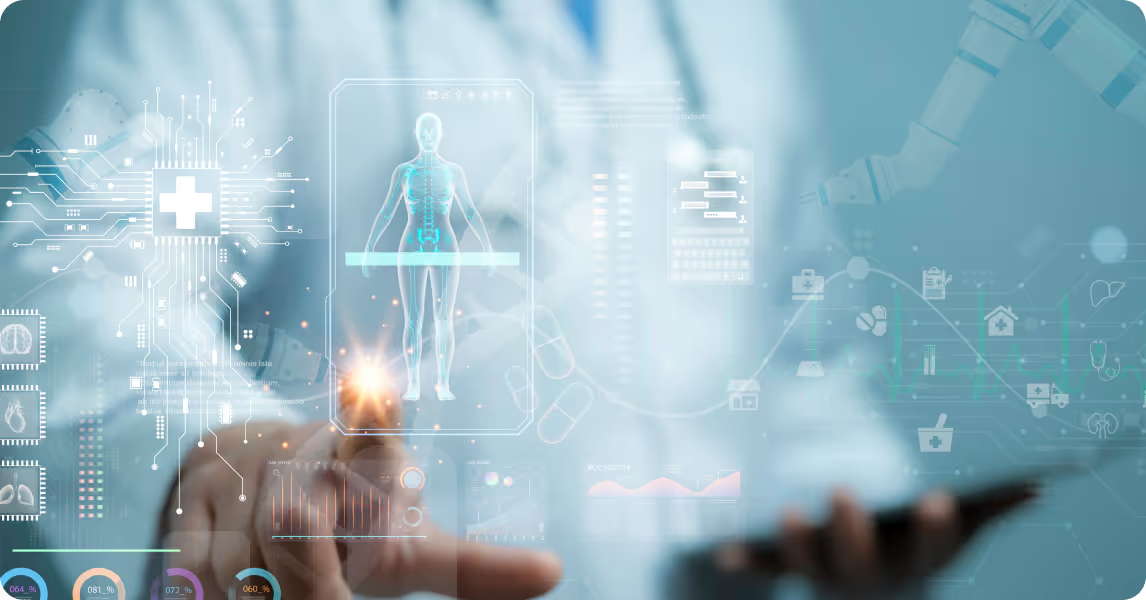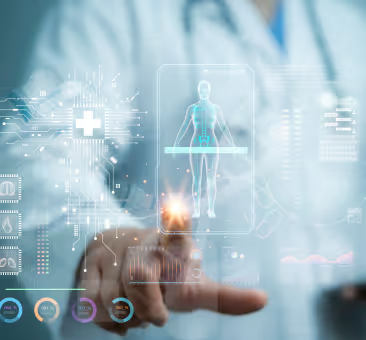


A artificial intelligence in health it is already a reality in Brazil and has transformed the way diseases are diagnosed, monitored, and treated. With the support of advanced algorithms, hospitals and clinics have been able to identify early signs of complex diseases, significantly increasing the chances of therapeutic success.
In this article, you will understand how this technology has positively impacted the health sector - especially prevention and early treatment - and how this can benefit your clinical practice, including the personalized prescription of supplements.
What is artificial intelligence in health?
Artificial intelligence (AI) in health refers to the use of computer technologies that simulate human intelligence to analyze large volumes of medical data, identify patterns, and suggest behaviors. In the clinical context, this applies to the interpretation of tests, medical decision support, and even to the management of health risks.
According to the Brazilian Society for Health Informatics (SBIS), AI is already integrated with different tools used in Brazilian clinical practice, directly contributing to faster diagnoses and more targeted treatments.
Early diagnosis with AI support
The main contribution of artificial intelligence in health lies in the early diagnosis of diseases, especially those that present subtle symptoms or evolve silently, such as cancer, type 2 diabetes, and neurodegenerative diseases.
Using trained algorithms, medical software can detect changes in imaging tests, laboratory signs, and even descriptions of symptoms that could go unnoticed in traditional analyses. In Brazil, Hospital Israelita Albert Einstein has used AI to improve diagnostic imaging, reducing human errors and anticipating interventions.
Benefits of artificial intelligence in health for clinical practice:
- Accelerates the diagnosis of silent diseases;
- Reduces medical errors based on the analysis of large volumes of data;
- It allows customization of nutritional and pharmacological treatments;
- Helps identify hidden nutritional deficiencies;
- It provides clinical support based on evidence updated in real time.
AI and treatment personalization
By detecting diseases early, AI also favors the construction of more individualized therapies. This applies both to the choice of medications and to the prescription of dietary supplements, optimizing the therapeutic plan based on concrete data.
AI-powered clinical platforms are able to cross-reference medical history, lifestyle, genetics, and laboratory tests to recommend more assertive behavior. An example of this is the use of clinical decision support systems integrated with electronic medical records — a resource already in use in public and private hospitals in Brazil.
The role of the health professional in this scenario
It is important to stress that artificial intelligence in health it is a support tool, not a replacement. The clinical eye, active listening, and critical reasoning remain indispensable. AI extends human capabilities, offering valuable inputs for more informed and effective behavior.
For professionals who work with nutritional supplementation, AI can assist in the early identification of specific needs, such as vitamin, mineral, and amino acid deficiencies, allowing for a more proactive and personalized approach.
Conclusion
The incorporation of artificial intelligence in health is promoting a true revolution in the way of diagnosing and treating diseases. By offering early diagnoses and more personalized behaviors, this technology expands the potential for therapeutic success - including in the clinical use of dietary supplements.
For health professionals seeking to provide modern, evidence-based and patient-centered care, following these innovations is more than a trend: it's a necessity. Are you already using or evaluating the use of AI in your practice?



